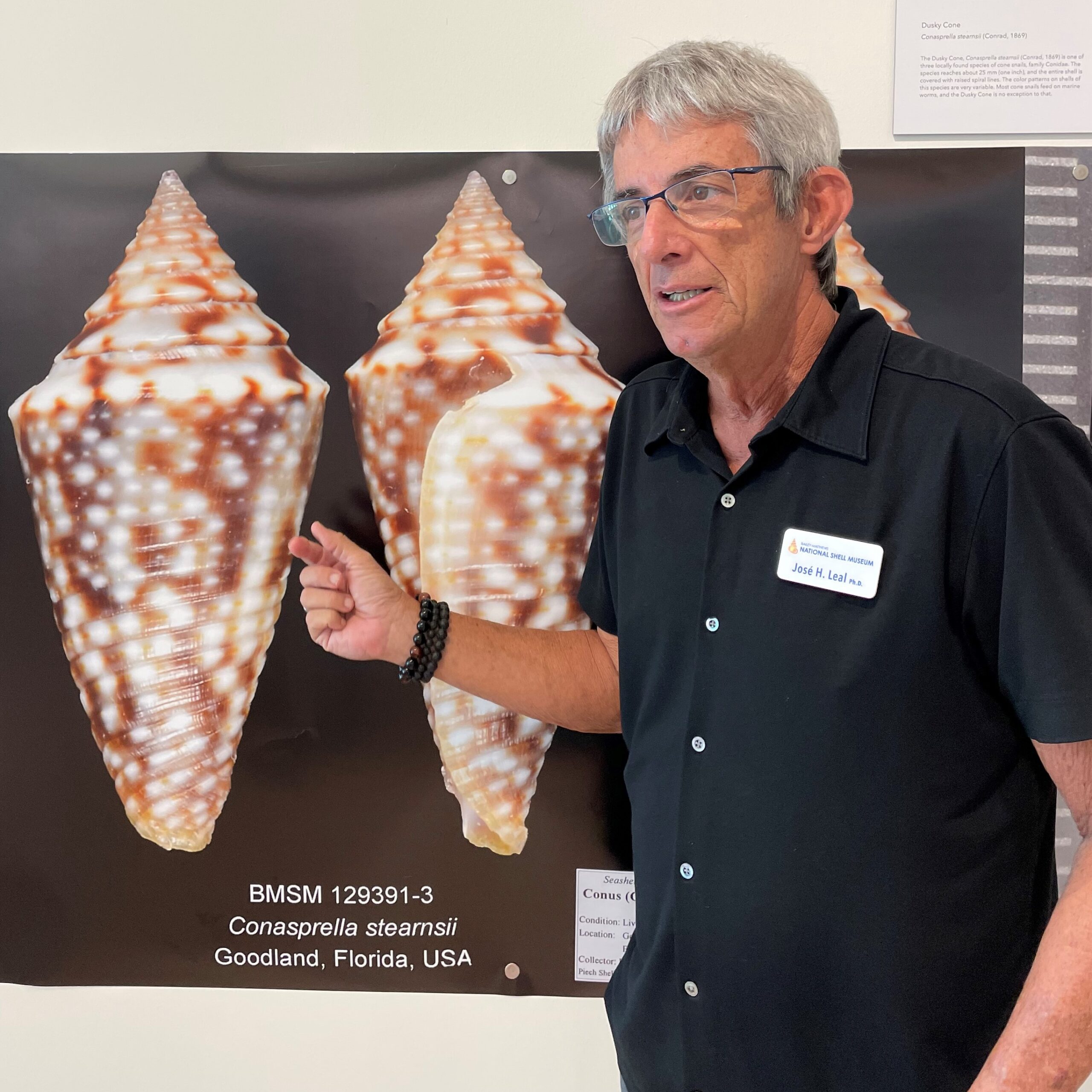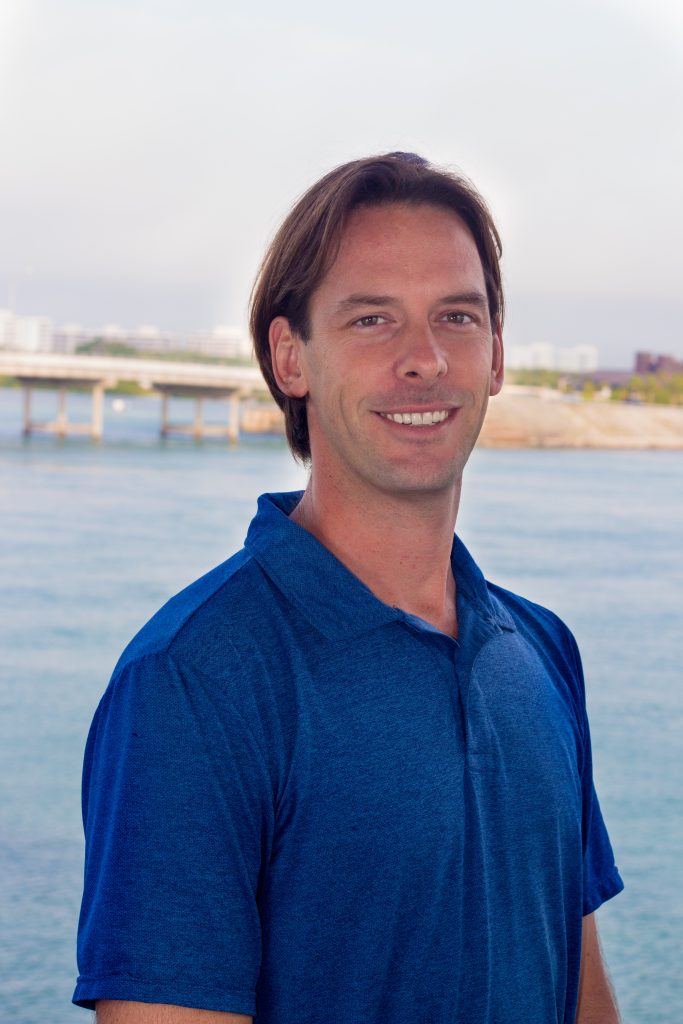Lectures


Designing and Opening the New Mote Science Education Aquarium
Evan Barniskis, Associate Vice President, Mote Aquarium
Thursday, March 12, 5:30pm. $10 for Non-members, free for Museum members. Click here to register.
This talk presents an insider’s view of one of the most important additions in decades to marine science education in Florida – the design and construction of the newly opened, $130 million Mote Marine Laboratory’s Science Education Aquarium in Sarasota.
Learn how this cutting-edge facility blends world-class architecture with Mote’s 70-year legacy of marine research, scientific innovation, and aquarium expertise; and the process of transferring and translating marine science into interactive and dynamic exhibits that advance ocean conservation, public engagement, and sustainability.
Evan Barniskis joined Mote Marine Laboratory in 2006. In his current role he oversees all aspects of Mote Aquarium’s operations.
The Future of Florida’s Coasts: What We Can Learn from the History of Tampa Bay
Evan Bennett, Florida Atlantic University
Wednesday, April 8, 5:30pm. $10 for Non-members, free for Museum members. Click here to register.
From pollution to development to cultural loss, challenges loom for those who live on Florida’s coasts. The history of Tampa Bay provides a great model for how Floridians can move forward. Seemingly doomed both ecologically and culturally by the 1970s, Tampa Bay has rebounded and today is a healthy estuary and site of vibrant cultural developments.
This talk illuminates that story, and the efforts of determined people and organizations who committed to saving the bay and its sustainability as a place and resource for all.
Evan Bennett is a Professor of History at Florida Atlantic University. His most recent book is Tampa Bay: The Story of an Estuary and Its People (University Press of Florida, 2024). It won the Silver Medal in Florida Nonfiction from the Florida Book Awards and the Stetson Kennedy Prize from the Florida Historical Society.

Archive of Online Lectures
October 16, 2025—Gulf Seafood: Sustaining Wildlife and Our Way of Life. By John Fallon, Director of Sustainability and Conservation Initiatives at the Audubon Nature Institute. Watch recording >>
September 18, 2025— What Can Oysters Tell Us About the Restoration of the Everglades? By Stephen Geiger, Ph.D., a Research Scientist studying Molluscan Fisheries/Marine Fisheries Biology at the Fish & Wildlife Research Institute of the Florida Fish & Wildlife Conservation Commission. Watch recording >>
August 21, 2025— South Florida’s Seasonal Seas. By Gabriel Jensen, photographer, biochemist, and photo-naturalist. Watch recording>>
July 24, 2025— Recent Research and Revelations at the Shell Museum & Aquarium. By Dr. José H. Leal, Science Director and Curator, and Jorden Falker, Associate Director of Education. Watch recording >>
Nov 14, 2024 — Carrier Shells: Nature’s Original Shell Collectors. By Gary Kidder, Collections Manager for Malacology and Inventory, Houston Museum of Natural Science. Watch recording >>
Sep 19, 2024 — Towards a New Great Hall of Shells. By José H. Leal, Ph.D., Science Director and Curator, Bailey-Matthews National Shell Museum & Aquarium and Sam Ankerson, Executive Director, Bailey-Matthews National Shell Museum & Aquarium. Watch recording >>
Aug 22, 2024 — Ecological and Historical Studies on Land Snails: Tiger Snails and Glacial History. By Dr. Timothy Pearce, Assistant Curator, Mollusks, Carnegie Museum of Natural History. Watch recording >>
Oct 12, 2023 — The Charisma of Cowries. Dr. José H. Leal, Ph.D., Science Director and Curator, Bailey-Matthews National Shell Museum. Watch recording >>
Sep 14, 2023 — Renewal: The Bailey-Matthews National Shell Museum One Year After Hurricane Ian. By Sam Ankerson, Executive Director, Bailey-Matthews National Shell Museum. Watch recording >>
Aug 17, 2023 — The Secret and Endangered Lives of Freshwater Mussels. By Dr. John Pfeiffer, Curator of Bivalvia, Smithsonian National Museum of Natural History. Watch recording >>
Jul 13, 2023 — Hawaiian Land Snails: Lessons in Conservation, Curation, and Research. By Dr. Norine Yeung, Malacology Curator, Bernice Pauahi Bishop Museum. Watch recording >>
May 17, 2023 — Micromollusks: The Allure of Small Size. By José H. Leal, Ph.D., Science Director and Curator, Bailey-Matthews National Shell Museum. Watch recording >>
Apr 20, 2023 — The Journey to One Billion Oysters with One Million New Yorkers. By Pete Malinowski, Executive Director of Billion Oyster Project. Watch
recording >>
Mar 23, 2023 — Exploring the Oceans for Public Television. By Alexa Elliott, Creator and Producer of PBS Program Changing Seas. Watch recording >>
Feb 15, 2023 — Renovating the George W. Strake Hall of Malacology, From Bottom to Top. By Tina Petway, Associate Curator of Malacology, Houston Museum of Natural Science. Watch recording >>
Jan 19, 2023 — Land Snails in Los Angeles: An Experiment in Urban Citizen Science. By Dr. Jann Elizabeth Vendetti, Associate Curator and Twila Bratcher Chair in Malacology Natural History Museum of Los Angeles County. Watch recording >>
Nov 10, 2022 — Hurricanes and Mollusks. By Dr. José H. Leal, Science Director and Curator Bailey-Matthews National Shell Museum. Watch recording >>
Sep 14, 2022 — Saving the Queen of the Sea: Queen Conch Conservation Aquaculture. By Megan Davis, Ph.D., Research Professor, Aquaculture and Stock Enhancement Program Florida Atlantic University Harbor Branch Oceanographic Institute. Watch recording >>
Aug 11, 2022 — Mobilizing Millions of Mollusks of the Eastern Seaboard. By Rüdiger Bieler, PhD, Curator of Invertebrates Field Museum of Natural History; and José H. Leal, PhD, Science Director and Curator Bailey-Matthews National Shell Museum. Watch recording >>
Jul 13, 2022 — Let’s Get Kraken: Cephalopods Coast to Coast. By Bret Grasse, Manager of Cephalopod Operations Marine Biological Laboratories (Woods Hole, MA). Watch recording >>
Jun 16, 2022 — Spot the Mollusk! By Rebecca Mensch, Senior Marine Biologist Bailey-Matthews National Shell Museum. Watch recording >>
Oct 20, 2021 — Spooky Mollusks and Other Evils of the Deep: A Halloween Special. By José H. Leal, Ph.D., Science Director and Curator, Bailey-Matthews National Shell Museum. Watch recording >>
Sep 28, 2021 — Shell Dressed: Seashells in Fashion and Jewelry. By Jean M. Burks, Curator Emerita, Shelburne Museum, and Kory Rogers, Francie and John Downing Senior Curator of American Art, Shelburne Museum. Watch recording >>
Sep 16, 2021 — Why Am I Growing Giant Clams in the Middle of the Arizona Desert? By Dan Killam, Ph.D., Biosphere 2, University of Arizona. Watch recording >>
Aug 24, 2021 — 8,000 Years of Shells in the American Southeast: Archaeological Insights on the Ecology, Diet, Architecture, and Ritual of Ancient Native Americans. By Kenneth E. Sassaman, Hyatt and Cici Brown Professor of Florida Archaeology, University of Florida. Watch recording >>
Jul 27, 2021 — Supersized Squid. By Rebecca Mensch, Senior Marine Biologist, Bailey-Matthews National Shell Museum. Watch recording >>
Jul 13, 2021 — Oysters: A Crystal Ball for Water Quality in Southwest Florida. By Melissa A. May, Ph.D., Assistant Professor of Marine Biology, Florida Gulf Coast University. Watch recording >>
Jun 29, 2021 — Curator’s Choice: New Photographs of Extraordinary Shells, and the Digital Imaging Project at the National Shell Museum. By José H. Leal, Ph.D., Science Director and Curator, Bailey-Matthews National Shell Museum. Watch recording >>
Jun 15, 2021 — Artistic Adaptations: 2,000 Years of Seashells in Art. By Jean M. Burks, Curator Emerita, Shelburne Museum, and Kory Rogers, Francie and John Downing Senior Curator of American Art, Shelburne Museum. Watch recording >>